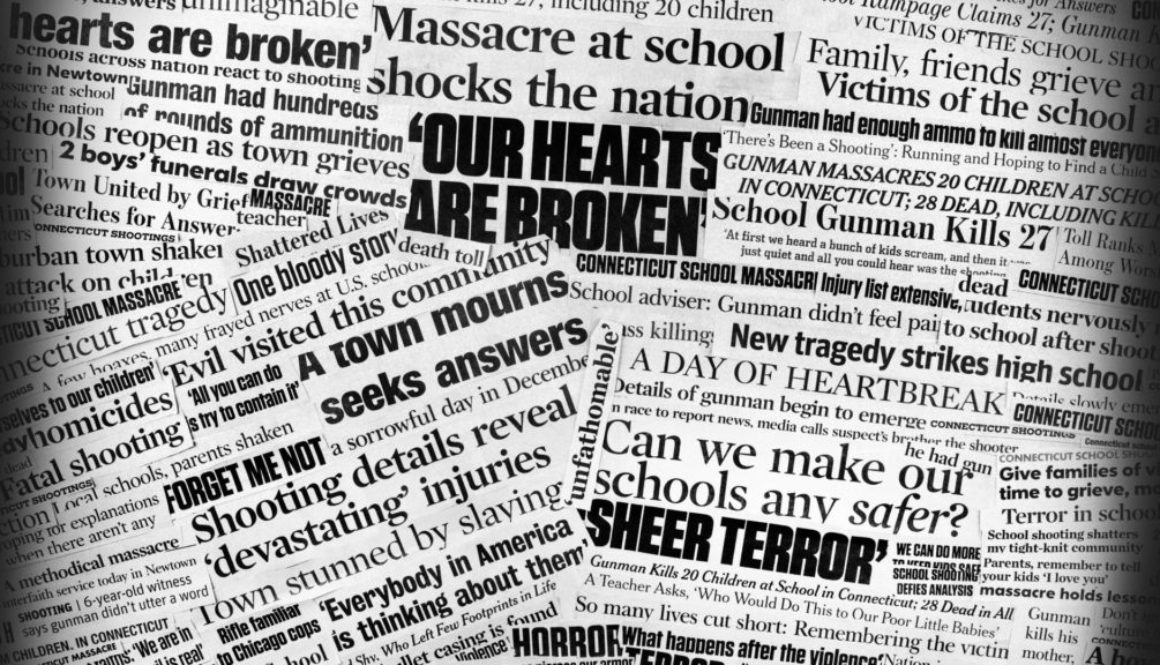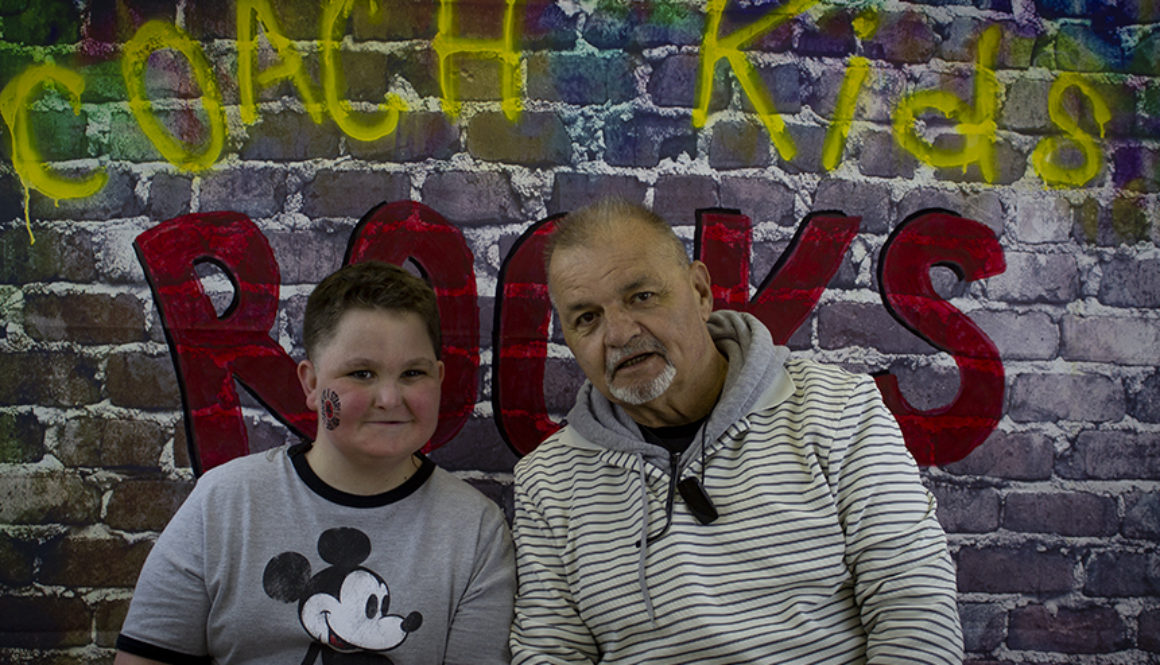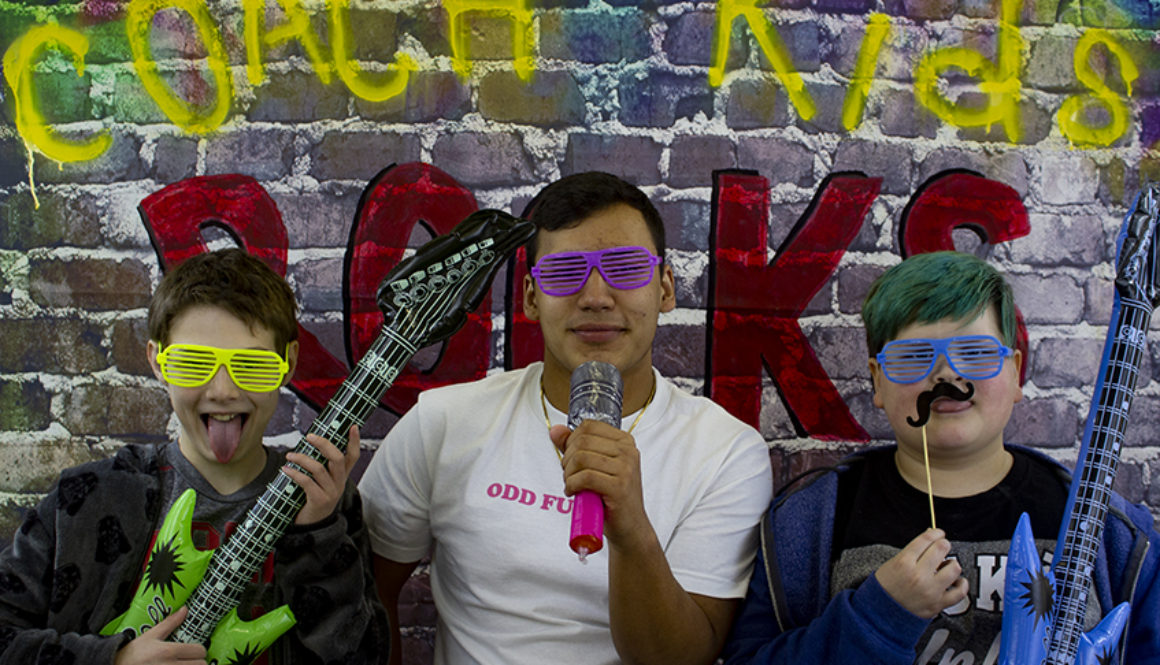January 2020 IMPACT
January is #NationalMentoringMonth !!
Find out what’s going on in our community to celebrate youth mentoring in the COACH Kids’ IMPACT e-newsletter!
(click the link below the image)
January is #NationalMentoringMonth !!
Find out what’s going on in our community to celebrate youth mentoring in the COACH Kids’ IMPACT e-newsletter!
(click the link below the image)

MENTOR: The National Mentoring Partnership & MHA-NYC Innovations in Mental Health
https://www.mentoring.org/new-site/wp-content/uploads/2015/09/JPMC-Trauma-Resource.pdf
Episodes of violence and trauma in young people’s communities, especially those that arise from a place of systemic inequality, prejudice and racism, impact young people’s lives in a variety of ways. Mentors are uniquely positioned to help young people process these experiences by providing a space to express their emotions, ask for help, and channel uncertain feelings into positive, constructive action. However, mentors may need strategies for supporting these discussions and actions as well as support for being allies to young people trying to make sense of their feelings. For example, in the aftermath of tragic incidents of racial profiling and violence resulting from police actions, young people may feel unsafe, angry, frustrated, sad, and powerless. This guide was developed to help mentors build relationships with young people that affirm their experiences and cultivate a sense of safety after incidents of violence or traumatic events occur. Additionally, we encourage mentors to convene with their networks and affiliated organizations to discuss these recommendations and apply them to the unique experiences of the communities and young people they serve, and we emphasize the importance of collaboration between youth-serving groups and organizations to facilitate affirming, healing and supportive conversations with young people about violence they have experienced or encountered, and their reactions to these tragic events.
PREPARE: CONTEXT AND ROLES
Define your role. Consider what it means to be an ally to young people as they navigate these challenges. Whether or not you and your mentee have similar backgrounds or experiences, your role is to respect and affirm their experiences, help them process their feelings, and consider what actions they can take that will support them and their communities. SUPPORTING YOUNG PEOPLE IN THE WAKE OF VIOLENCE AND TRAUMA SUPPORTING YOUNG PEOPLE IN THE WAKE OF VIOLENCE AND TRAUMA 2
Do your homework. Take time to learn about the factors that impact the overall wellness of the young people you mentor and their communities, including acute losses or traumatic events, as well as more chronic and pervasive challenges like food injustice and homelessness. Consider how your mentee might perceive these issues and what his/ her perspective might be. Talk with other adults and seek professional perspectives on how these issues might impact your mentee, what a supportive conversation with your mentee about these topics might look like, and what kind of additional supports are available to your mentee.
Know yourself. It is important to consider that conversations about race, privilege, and violence may be more harmful than beneficial to young people if you are not able to effectively affirm, attend to, and support young people in expressing their feelings. Often, mentors find these conversations personally challenging. It is important to explore your own biases, emotional triggers, and limitations before entering into a conversation with a young person about a challenging topic. Creating a plan to manage your feelings so you can effectively support your mentee is a key step, and should be part of an ongoing reflection process for mentors.
Keep Reading! There’s much more information to guide you at https://www.mentoring.org/new-site/wp-content/uploads/2015/09/JPMC-Trauma-Resource.pdf

By Lona Davis
HERO is a huge word. We hear the word often, but not nearly enough. We are surrounded by heroes every day. They are easy to spot if you expand your view and observe those around you.
Mike Lanum is not only a hero for COACH Kids, but is one in his daily life. A retired Fire Chief, he is married to Fran for 46 years. Their children and grandchildren are a great source of joy for them and you will often see them at Rossville sporting events cheering them on. Mike recognizes the need for a listening ear, kind heart, and a huge smile. “A small amount of your time can make a big difference in a life.”
Mike has been a mentor for COACH Kids for over six years. His reason for becoming a mentor was that he feels we all need a little hope and someone who cares. “I have always been a good listener, but now I am even better. The impact to my life is that it puts a smile on my face. I enjoy knowing that I am trying to make a difference in a life, no matter how big or small.”
The Local Heroes Program of COACH Kids is our school-based program. Referrals come through several different avenues. While children are mostly referred by a teacher or counselor, at times we are contacted by a concerned parent. In March of 2018 we heard from a mom who had realized her son had need for a special friend in his life. When Mike became available for a new match at the start of the school year, all of our prayers were answered. Landon needed a calming influence and he loves both firefighters and police officers. Mike certainly fit the bill!Landon’s mom, Stephanie O’Neal, says “My husband and I are forever grateful for Mike’s willingness to come into Landon’s life to be a positive influence! He’s such a kind and patient person, which for Landon, is exactly the kind of adult he needs. Landon always speaks so highly of “his Mike.” Landon has said multiple times that when he grows up, he’s going to be a firefighter just like Mike”. Thank you for matching them together!”
You can be a hero, too! Contact the COACH Kids office and talk to Lona about how you can go into a school 30 minutes a week and change a kid’s world for the better! (765) 654-8812

“Parent’s Guide to Teen Depression” excerpt. Go to the website to read it in its entirety.
HELPGUIDE.ORG https://www.helpguide.org/articles/depression/parents-guide-to-teen-depression.htm
While occasional bad moods or acting out is to be expected during the teenage years, depression is something different. The negative effects of teenage depression go far beyond a melancholy mood. Depression can destroy the essence of your teen’s personality, causing an overwhelming sense of sadness, despair, or anger. Many rebellious and unhealthy behaviors or attitudes in teenagers can be indications of depression. The following are some the ways in which teens “act out” in an attempt to cope with their emotional pain:
Problems at school. Depression can cause low energy and concentration difficulties. At school, this may lead to poor attendance, a drop in grades, or frustration with schoolwork in a formerly good student.
Running away. Many depressed teens run away from home or talk about running away. Such attempts are usually a cry for help.
Drug and alcohol abuse. Teens may use alcohol or drugs in an attempt to “self-medicate” their depression. Unfortunately, substance abuse only makes things worse.
Low self-esteem. Depression can trigger and intensify feelings of ugliness, shame, failure, and unworthiness.
Smartphone addiction. Teens may go online to escape their problems, but excessive smartphone and Internet use only increases their isolation, making them more depressed.
Reckless behavior. Depressed teens may engage in dangerous or high-risk behaviors, such as reckless driving, binge drinking, and unsafe sex.
Violence. Some depressed teens—usually boys who are the victims of bullying—can become aggressive and violent.
Teen depression is also associated with a number of other mental health problems, including eating disorders and self-injury. While depression can cause tremendous pain for your teen—and disrupt everyday family life—there are plenty of things you can do to help your child start to feel better. The first step is to learn what teen depression looks like and what to do if you spot the warning signs.
What are the signs and symptoms of depression in teens?
Unlike adults, who have the ability to seek assistance on their own, teenagers rely on parents, teachers, or other caregivers to recognize their suffering and get them the help they need. But that isn’t always easy. For one, teens with depression don’t necessarily appear sad. Instead, irritability, anger, and agitation may be the most prominent symptoms.
Depression is very damaging when left untreated, so don’t wait and hope that worrisome symptoms will go away. If you suspect that your teen is depressed, bring up your concerns in a loving, non-judgmental way. Even if you’re unsure that depression is the issue, the troublesome behaviors and emotions you’re seeing are signs of a problem that should be addressed.
Open up a dialogue by letting your teen know what specific depression symptoms you’ve noticed and why they worry you. Then ask your child to share what they’re going through—and be ready and willing to truly listen. Hold back from asking a lot of questions (most teenagers don’t like to feel patronized or crowded), but make it clear that you’re ready and willing to provide whatever support they need.
Focus on listening, not lecturing. Resist any urge to criticize or pass judgment once your teenager begins to talk. The important thing is that your child is communicating. You’ll do the most good by simply letting your teen know that you’re there for them, fully and unconditionally.
Be gentle but persistent. Don’t give up if they shut you out at first. Talking about depression can be very tough for teens. Even if they want to, they may have a hard time expressing what they’re feeling. Be respectful of your child’s comfort level while still emphasizing your concern and willingness to listen.
Acknowledge their feelings. Don’t try to talk your teen out of depression, even if their feelings or concerns appear silly or irrational to you. Well-meaning attempts to explain why “things aren’t that bad” will just come across as if you don’t take their emotions seriously. Simply acknowledging the pain and sadness they are experiencing can go a long way in making them feel understood and supported.
Trust your gut. If your teen claims nothing is wrong but has no explanation for what is causing the depressed behavior, you should trust your instincts. If your teen won’t open up to you, consider turning to a trusted third party: a school counselor, favorite teacher, or a mental health professional. The important thing is to get them talking to someone.
Depressed teens tend to withdraw from their friends and the activities they used to enjoy. But isolation only makes depression worse, so do what you can to help your teen reconnect.
Make face time a priority. Set aside time each day to talk—time when you’re focused totally on your teen, without distractions or trying to multi-task. The simple act of connecting face to face can play a big role in reducing your teen’s depression. And remember: talking about depression or your teen’s feelings will not make the situation worse, but your support can make all the difference in their recovery.
Combat social isolation. Do what you can to keep your teen connected to others. Encourage them to go out with friends or invite friends over. Participate in activities that involve other families and give your child an opportunity to meet and connect with other kids.
Get your teen involved. Suggest activities—such as sports, after-school clubs, or an art, dance, or music class—that take advantage of your teen’s interests and talents. While your teen may lack motivation and interest at first, as they reengage with the world, they should start to feel better and regain their enthusiasm.
Promote volunteerism. Doing things for others is a powerful antidepressant and self-esteem booster. Help your teen find a cause they’re interested in and that gives them a sense of purpose. If you volunteer with them, it can also be a good bonding experience.
Physical and mental health are inextricably connected. Depression is exacerbated by inactivity, inadequate sleep, and poor nutrition. Unfortunately, teens are known for their unhealthy habits: staying up late, eating junk food, and spending hours on their phones and devices. But as a parent, you can combat these behaviors by establishing a healthy, supportive home environment.
Get your teen moving! Exercise is absolutely essential to mental health, so get your teen active—whatever it takes. Ideally, teens should be getting at least an hour of physical activity a day, but it needn’t be boring or miserable. Think outside the box: walking the dog, dancing, shooting hoops, going for a hike, riding bikes, skateboarding—as long as they’re moving, it’s beneficial.
Set limits on screen time. Teens often go online to escape their problems, but when screen time goes up, physical activity and face time with friends goes down. Both are a recipe for worsening symptoms.
Provide nutritious, balanced meals. Make sure your teen is getting the nutrition they need for optimum brain health and mood support: things like healthy fats, quality protein, and fresh produce. Eating a lot of sugary, starchy foods—the quick “pick me up” of many depressed teens—will only have a negative effect on their mood and energy.
Encourage plenty of sleep. Teens need more sleep than adults to function optimally—up to 9-10 hours per night. Make sure your teen isn’t staying up until all hours at the expense of much-needed, mood-supporting rest.


By Lona Davis, Local Heroes Program Manager

High School students from Rossville, Clinton Prairie and Clinton Central have been partnering with COACH Kids to mentor an elementary student via the Local Heroes Program for over 10 years. Three years ago, the Program started its own in-school organization. Since forming, COACH Kids Club, the number of High School Mentors has increased to nearly 100 matches.
Statistics show that 90% of kids that are mentored want to become mentors. COACH Kids has instances of young people that were mentored just a few years ago that are now mentoring in our Local Heroes Program. Being mentored and being a mentor can lead to life changes. The tools that are developed while mentoring may lead to lifelong volunteerism in the broader community. Kelsey Shields an alum of Clinton Prairie is a great example. Kelsey received a COACH Kids Scholarship last year and continues her mentoring in the College Mentors for Kids Program at Ball State.
Layne Snyder, a Senior at Clinton Prairie says “I’ve been lucky enough to have Braxton as my mentee for 3 years now! We look forward to seeing each other every week and learning new things about each other. Braxton and I have grown into best friends over the years! We have formed a bond that I know will last forever, and he feels safe telling me anything going on in his life. I have watched him mature and grow not only within school, but also as a person. “
High School Mentors have so much to offer our elementary students. Along with their vitality and ability to be a role model, the mentors are trained on consistency, reliability, listening, and problem solving. The ability to help their young person feel positive about school and building a trusting friendship is huge. They are encouraged to laugh, a lot. Taryn Wainscott, a Sophomore at Rossville, says “I love getting to spend each Tuesday morning with Abel playing board games. He always greets me with a huge hug and smile and has many stories to tell from the past week. It always brightens my day.”
When asked to describe her experience with community service and volunteering and how it has affected you and your outlook, Robin Blackwell, a Senior at Rossville replied “In my community, I enjoy a variety of activities that involve serving others while becoming a better person myself. My involvement with COACH Kids, a Clinton County faith-based program to guide at-risk youth, continues to impact me the most. Every Wednesday I mentor a sweet fifth-grader through COACH Kids. When I joined this program a year ago, I was nervous that I would not know how to relate to and guide a child so unlike me. However, she has taught me that no matter what life serves you, it does not have to steal your positivity. Every day she could choose to embrace her not-so-ideal situations; however, she chooses to be joyful, kind, helpful, generous, and considerate. My mentee inspires me to make the best out of anything I may face.”
Teams of counselors, teachers, and staff who COACH Kids considers their “All Stars”, manage their Clubs within the schools. Colleen Jacoby, the Coordinator at Rossville High School, has witnessed the COACH Kids Local Heroes Program making a big impact on both the mentors and the mentees. “It is wonderful to see that the mentors are taking their time with the mentees seriously and are conscious about being the role model to these students in school and in the community. A mother of a mentee sought out her son’s mentor at a basketball game (the mentor being a basketball player on the varsity team) and said how important he was to her son and that her son talked about him at home all the time. I also witnessed the student coming up to his mentor at the game and it was so great to see the mentor taking time and making the mentee feel important and special. The impact these small acts have on a young student cannot be measured and should never be taken for granted.”
If becoming a mentor in your High School is something you would like to do, watch for your “Call Out’ recruiting meeting near the end of August at Rossville, Clinton Prairie, or Clinton Central. This Program is in-school only. The only approved time outside of school will be the Local Heroes Luncheon at the beginning of April with food, games, and time to celebrate friendship.
In partnership with Local Businesses and Individuals, COACH Kids offers a Scholarship Program for their Senior Mentors. For more information on COACH Kids Local Heroes Programs or to contribute to the scholarships, please call 765-654-8812, or email lona.davis@att.net.

